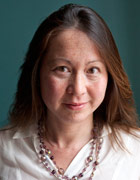Genome editing
 Professor Karen Yeung is a member of the Nuffield Council on Bioethics Working Group which has today published the report Genome editing: an ethical review.
Professor Karen Yeung is a member of the Nuffield Council on Bioethics Working Group which has today published the report Genome editing: an ethical review.
The first findings of the Working Group consider the recent and potential impact of advances in genome editing across many areas of biological research. The Council found evidence that, given its technical advantages and rates of uptake, genome editing is already having an almost unprecedented impact in research. The Council considered factors such as the extent to which the ethical questions raised by applications of the technology are novel, the likelihood of imminent advances in these areas and the possible effects of these advances in fields such as healthcare, food production, industry and public health.
The review was produced by an expert working group that included expertise in science, law, philosophy, ethics, sociology and industry. In coming to its conclusions, the working group invited contributions from a wide range of people including an open call for evidence that ran from November 2015 until February 2016.
Professor Yeung to Chair newly established Nuffield Council on Bioethics Working Party on human reproductive applications
The Council has established a Bioethics Working Party on human reproductive applications which Professor Yeung will Chair. She said:
'Genome editing is a potentially powerful set of techniques that holds many future possibilities, including that of altering certain genetic features at the embryonic stage that are known to lead to serious and life-limiting disease. In the UK and in many other countries, a long path to legislative change would have to be followed before this could become a treatment option. But it is only right that we acknowledge where this new science may lead and explore the possible paths ahead to ensure the one on which we set out today is the right one. We will be very interested to hear people’s views on this aspect of genome editing technologies in our new inquiry'.
Further information
Read more including the full Nuffield Council report Genome editing: an ethical review on the Nuffield Council website.
See Professor Yeung's web profile on the King's website.
The Centre for Technology, Ethics, Law & Society (TELOS) is a Research Centre at The Dickson Poon School of Law which seeks to engage in rigorous, policy-relevant research exploring the legal, ethical and social implications of new and emerging technologies. Visit the Centre of Technology, Ethics & Law in Society webpages.